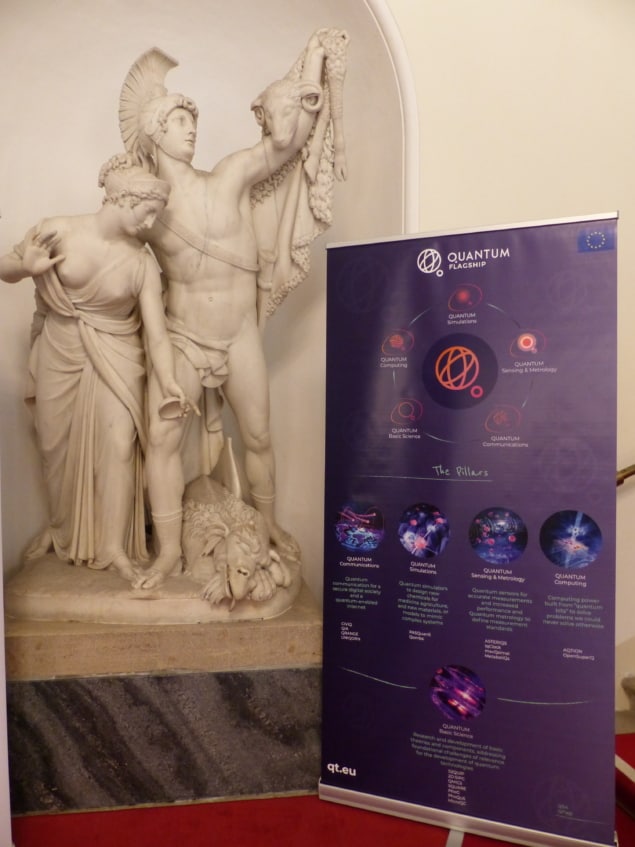Europe pledges €1bn for applied quantum technologies
29 Oct 2018 Margaret Harris
Members of the European quantum science community gathered in Vienna today to kick off a 10-year, €1bn European Commission (EC) initiative that aims to position Europe at the forefront of the emerging quantum technologies industry.
Speaking in a glittering hall within the former palace of Austria’s Hapsburg emperors, Gustav Kalbe, head of the EC’s High Performance Computing and Quantum Computing Unit, explained that the “core idea” of the new Quantum Flagship is to take scientific results out of university labs, bring them to fruition and build an industry around them. “There are still many scientific challenges to be solved, but we are now at the point where we can begin giving the taxpayer a return on their investment,” Kalbe said. The flagship’s many industrial partners, he added, are “no longer following by the sidelines” but making active contributions.
The projects chosen for the flagship’s initial, €130m phase, which runs through 2020, reflect this emphasis on applied science. Although basic-science proposals made up almost two-thirds of the 140 submissions to the flagship’s steering committee, 12 out of the 20 accepted projects focus on applied research – a strategy that several audience members called into question during a lively open-floor debate.
In response, physicist Juergen Mlynek, who chaired the committee, pointed out that the flagship was specifically designed to build links between academia and the private sector. “In the US, companies like Google and Microsoft are putting hundreds of millions of dollars into this field, mostly in quantum computing, and nobody cares if they burn $100m or $200m – they are sitting on piles of cash,” he said. “I don’t see a company in Europe that is willing to put hundreds of millions of euros into quantum technologies, so we have to do things differently…Our goal is to contribute to jobs and wealth creation in Europe.”

More ambitiously, Mlynek explained, the flagship hopes to create a pan-European secure quantum network, build the world’s first advanced quantum computer, and develop quantum technologies that can support drug design, navigation for autonomous driving and ultrasensitive diagnostics in healthcare.
During the kick-off, coordinators of funded projects within each of the four “pillars” of the flagship – quantum communication, computing, simulation and metrology/sensing – outlined how they will work together. The quantum communication pillar, for example, includes efforts to develop quantum repeaters, which are needed to transmit qubits over long distances, but also to define industry standards and certification mechanisms for quantum random number generators. Stephanie Wehner, a physicist at Delft University of Technology in the Netherlands and coordinator of the Quantum Internet Alliance project, notes that several of these technologies will be useful for quantum computing as well as communications.
Further details of the flagship are available at https://qt.eu.
29/10/2018 FROM PHYSICSWORLD.COM

Δεν υπάρχουν σχόλια:
Δημοσίευση σχολίου